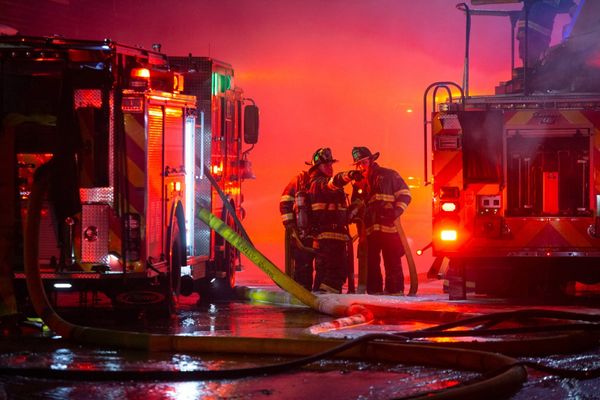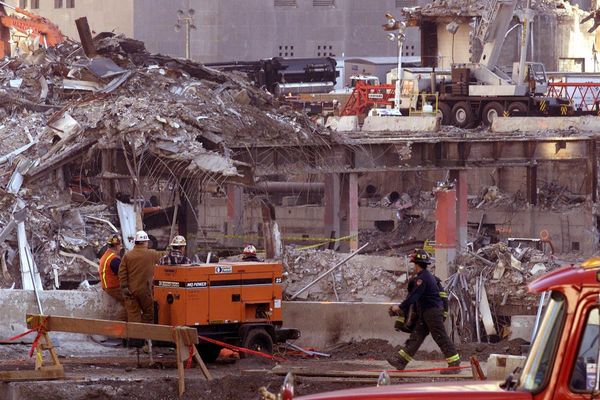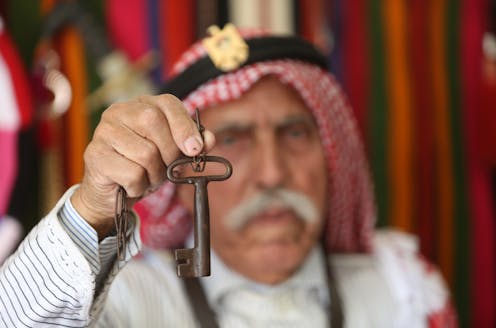
Until 1948, Lajjun was a small village about ten miles south of Nazareth in one of the most fertile valleys in Palestine. Since 1949, the area has been occupied by Jewish settlers who established Kibbutz Meggido there. In the early 1980s, I interviewed Ali Jabareen, a refugee from Lajjun. He agreed to show me what remained of his village. He brought his daughters with him – the first time they had seen their ancestral village.
Jabareen explained to them what had happened in 1948: “Our house was here and your uncle’s house were there. We were forced out of our land in 1948. Our family owned 70 acres of land in Lajjun and today we have only one. It is not only our tragedy, but that of all the Palestinians.”
One daughter asked him: “What did you do when they expelled you from your land?”
He replied: “We lived for more than a year under the trees. Hoping any day we would return, but we were not able to.”
She asked: “What work you did after you were expelled?”
He said: “None. There was no work for us. Israel imposed military rule on the Arab community in Israel and you needed a permit to travel for work, medical treatment or any other business.”
She then asked: “Why did they expel you?”
He explained: “They do not want the Palestinians here – they want the land for themselves.”
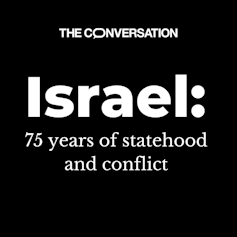
Expert analysis of the birth of the state of Israel and the plight of the Palestinian people.
Catastrophe
The establishment of the state of Israel in 1948 and the outcome of the war it involved not only changed the power relations between Israel and the Palestinians, it had an immediate and devastating impact on the Palestinian people. Palestinians refer to these events as “al Nakba” or “the Catastrophe”.
Most of the indigenous Palestinian population, an estimated 750,000 people who lived on 77.8% of the land in Palestine – which later became Israel – were expelled from their homes or fled as a result of the war. Later, as a result of the six-day war in 1967, Israel occupied the West Bank, Gaza and East Jerusalem – the rest of Palestine.
Palestinians became refugees in the West Bank and Gaza Strip and neighbouring Arab countries such as Lebanon, Syria and Jordan. The United Nations Relief and Works Agency for Palestine Refugees (UNRWA) estimates that there are today 6 million Palestinian refugees living in camps in these areas. They live in crowded refugee camps and rely on UNRWA medical, education facilities and humanitarian relief to this day, 75 years later.
It is estimated that about 500 Palestinian villages and towns were destroyed and Palestinian communities in urban locations such as Jaffa, Jerusalem, Haifa and Tiberius, the heart of the Palestinian middle classes were expelled.
After 1948, about 160,000 Palestinians remained in the newly created state, representing somewhere in the region of only 10% of the original population. Those who remained were rapidly reduced to a minority, becoming second-class citizens in their homeland – cut off from the rest of their fellow nationals. Once detached from their land, Palestinians effectively became an unskilled cheap labour force for the Israeli economy.
This gives the lie to Israel’s founding myth that Palestine happened to be “a land without a people for a people without a land”.
Displacement and trauma
The Nakba traumatised the Palestinians in every conceivable way. The forced displacement from their homes and land to become refugees in other countries – or even in what had once been their own country – is central to the Palestinian collective memory. My parents’ generation – which endured these traumatic events – refused to talk about the Nakba because it was still raw and painful and the sense of powerlessness often remained with them.
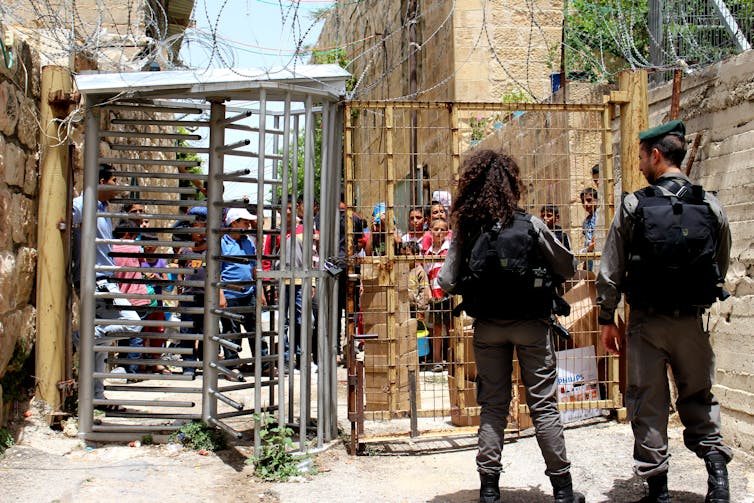
The events of 1948 and the years that followed fragmented Palestinians – their identity, communities and whole families. The familiar social structures and relationships were broken down. The political and intellectual leadership was defeated and expelled and it was to take until 1964 until the establishment of the Palestinian Liberation Organisation (PLO).
In the meantime, the Palestinians became lost, unrepresented and virtually invisible to the world.
Right of return
The calamity of the Nakba after 75 years remains at the heart of the Israeli-Palestinian conflict and we are now seeing the Palestinian young generation growing more confident to articulate the right of return and their freedom.
On April 26, Palestinian political organisations and civil society organisation in Israel organised the 26th annual “march of the return” – this time to the village of Lajjun. They returned to a village where all the homes had long ago been destroyed and planted with trees to conceal the landmarks of the village.
This year’s demonstration brought thousands of young Palestinians – three or four generations removed from the Nakba, who raised Palestinian flags, placards with the names of destroyed Palestinian villages and slogans including: “No return from the right of return.”
Mohammad Barakeh, former Knesset member and head of the coalition of all Palestinian political and social groups and organisations in Israel, said at the time: “Your independence is our Nakba, we are the indigenous population of this land, we have the right to live on our land and for the refugees to return home.”
UN resolution 194 – passed in December 1948 – read as follows:
Resolves that the refugees wishing to return to their homes and live at peace with their neighbours should be permitted to do so at the earliest practicable date, and that compensation should be paid for the property of those choosing not to return and for loss of or damage to property which, under principles of international law or in equity, should be made good by the Governments or authorities responsible.
Seventy-five years later, Palestinians are still losing their homes and the resolution remains unresolved. And as Israel celebrates its 75th anniversary, the moral claim of Palestinians continues to be ignored.
Dr Marwan Darweish | Associate Professor in Peace Studies Coventry University, Centre for Trust, Peace and Social Relations, IV5, Innovation Village, Cheetah Road, Coventry, CV1 2TL, UK
This article was originally published on The Conversation. Read the original article.




